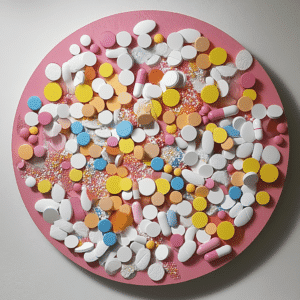Addiction is a powerful force that can disrupt lives and tear families apart. For parents dealing with children struggling with addiction, it’s a journey fraught with heartache and uncertainty. However, amid this chaos, goal-setting in recovery emerges as a beacon of light that inspires lasting change and hope. Setting clear objectives enables individuals to chart their paths and gives them the motivation to keep moving forward. Research highlights that clearly defined, achievable goals play a critical role in enhancing motivation and instilling a sense of purpose. As families grapple with the challenges of addiction, goal-setting serves as an essential foundation—one that can lead to incredible transformations.
To illustrate this connection, research published in the Journal of Substance Abuse Treatment shows that those engaged in structured goal-setting are more likely to remain sober and improve their mental health. As parents, the task of helping their children navigate recovery isn’t just about understanding addiction; it’s about instilling hope through the power of aspirations. Becoming involved in their child’s goal-setting can facilitate a journey towards recovery that is brimming with potential and promise.
Families don’t just benefit from supporting their children in setting goals; they can also establish their own objectives. This dual approach fosters an environment where both parties learn to nurture resilience and, ultimately, break free from the grips of addiction. Establishing shared goals promotes communication, unity, and understanding, setting the stage for healing and growth. So, let’s explore effective strategies for goal-setting in recovery that parents and individuals can utilize to inspire positive transformations.

Top 7 Effective Goal-Setting Strategies in Recovery
When it comes to goal-setting in recovery, following the SMART criteria is essential. These goals are Specific, Measurable, Achievable, Relevant, and Time-bound. Rather than saying, “I want to quit drinking,” a better approach would be, “I will attend three AA meetings per week for the next two months.” This kind of specificity gives clear direction and creates accountability.
Large, overarching goals can seem unmanageable. Instead, breaking them down allows for smaller milestones that feel more achievable. If someone aims to improve social skills, starting with reaching out to one friend each week can create momentum and build confidence over time.
Visualization is a compelling technique that enhances motivation. Techniques like creating vision boards or engaging in daily affirmations empower individuals to imagine their recovery journey and visualize the life they hope to build. This practice has been embraced by many public figures, including Demi Lovato, who has shared her journey and the role of positive visualization in overcoming her challenges.
Seeking accountability through peer support can make a significant difference in goal achievement. Programs like SMART Recovery emphasize sharing goals within a supportive community. This camaraderie can lead to greater commitment and promote a sense of belonging, something essential in the recovery journey.
Recovery is often unpredictable, making flexibility vital. Regularly reassessing goals and making adjustments is part of a realistic approach. During tough times, it may be necessary to reduce weekly goals or extend timelines, allowing for self-compassion and understanding.
Recognizing and celebrating achievements, no matter how small, fosters a sense of accomplishment. Whether it’s a month of sobriety or completing a personal project, acknowledging these milestones reinforces positive behavior and propels individuals forward. Resources like Celebrating sobriety Milestones provide helpful insights and ideas for ways to commemorate victories in recovery.
Self-care is crucial in the recovery process. Incorporating well-being goals—like committing to ten minutes of meditation daily or exercising three times a week—can strengthen resilience. These self-care practices are instrumental in sustaining recovery and promoting a healthier lifestyle.

Real-Life Applications: Success Stories
There’s immense power in real-life success stories that reflect the impact of goal-setting. For instance, Robert Downey Jr. has openly credited his recovery journey to the personal goals he outlined for himself. Staying committed to his passion for acting and building meaningful connections with his family has kept him grounded during periods of struggle. His story is a stellar example of how combining personal aspirations with recovery can lead to remarkable change.
Furthermore, the non-profit organization Shatterproof has incorporated goal-setting into their community programs. Participants are encouraged to set and track their recovery goals, fostering a culture of accountability and support in a real-world setting. This hands-on approach illustrates how goal-setting in recovery can cultivate environments where success thrives.
Challenges in Goal-Setting during Recovery
Despite the many benefits, goal-setting in recovery can present its own set of challenges. Individuals may grapple with slips, emotional turmoil, or unexpected life changes that can derail progress. In addition, feeling the pressure to meet self-imposed expectations may lead to feelings of inadequacy. It’s essential for individuals to maintain a balanced perspective, blending ambition with self-compassion to navigate the inevitable ups and downs of recovery.
Parents can also face difficulties as they try to support their children through this process. Understanding how to remain encouraging while allowing for independence is key. Regular conversations offering empathy and encouragement can help reinforce each party’s commitment to their recovery goals.
Innovative Training and Tools for Goal-Setting
The digital age has ushered in various tools to assist those in recovery with their goal-setting journey. Applications like Sober Grid enable individuals to connect with others, share their achievements, and track their progress. Similarly, Day One Journal provides customizable templates for logging thoughts and tracking milestones. These digital platforms integrate goal-setting into everyday life, making it easier to remain accountable while simultaneously fostering connections with others.
As innovation continues to blossom, families can explore an array of resources to support their loved ones in recovery. Incorporating tools that emphasize accountability, shared experiences, and goal tracking can foster an enhanced sense of purpose.
Propelling Forward with Hope and Resilience
As we delve deeper into the importance of goal-setting in recovery, it’s essential to remember that recovery is rarely a straight line. It’s a journey with its share of ups and downs that demands continuous adaptability and perseverance. With clearly defined goals, proven strategies, and a solid support network, individuals can ignite profound changes and nurture renewed hope.
Mothers Against is dedicated to supporting families through this journey, providing meaningful resources to help parents and their children make strides toward lasting recovery. As we march into 2024, let’s embrace the transformative power of goal-setting in recovery—knowing that every little step taken today contributes to a brighter, healthier future for individuals and their families. Together, we can forge pathways to meaningful recovery and inspire hope.
Goal-setting in Recovery
Setting goals in recovery isn’t just about putting pen to paper; it’s a vital process that inspires change and fosters hope. Engaging in goal-setting creates a sense of purpose, which can be a game-changer for those overcoming addiction. Interestingly, studies show that individuals who set clear goals are more likely to succeed in their recovery journey. They often benefit from seeing their progress, fostering a sense of accomplishment that keeps motivation high. You might think of it as using a house calculator mortgage to draft a plan for your future. Just as a calculator helps with budgeting, goal-setting provides a roadmap towards a sober life.
The Power of Celebrating Milestones
When it comes to goal-setting in recovery, Celebrating sobriety Milestones can significantly boost one’s morale. Each small victory on the path to recovery should be recognized. This celebration acts like a motivational shot in the arm, boosting one’s confidence and reinforcing positive habits. Additionally, incorporating gratitude Practices into daily routines can further solidify this mindset. Developing a focus on what one is grateful for can improve mental health and enhance resilience. So, chalk it up to the power of having a supportive community and recognizing each step forward, even if it’s as casual as discussing things like Lelu love and what it means to share joy.
Building Towards a Sober Future
As individuals embrace goal-setting in recovery, they often discover new passions and possibilities. This journey isn’t just about avoiding substances; it’s about building a sober future filled with new experiences and opportunities. Exploring different interests, from creative arts to fitness, can help individuals form healthier connections and lifestyles. For instance, some might find inspiration in unique outlets like Maki Oze or delve into communities that focus on creativity and recovery. It’s essential to recognize that while recovery can have its ups and downs, having clear goals makes navigating these challenges easier. Each step leads to meaningful progress in life after addiction.





























